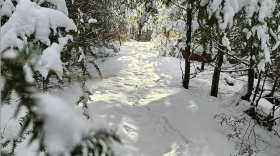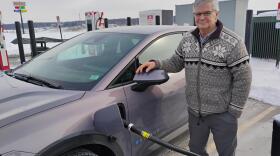-
An analysis by Climate Central found that Milwaukee’s January temperatures have risen more than 8 degrees over the last 55 years.
-
Milwaukee-area anglers have been watching changes in ice fishing conditions as climate change takes its toll on winter weather.
-
Grasslyn Manor, a neighborhood within Milwaukee’s Sherman Park, has been grappling with flooded basements for decades. Despite the increasingly erratic weather climate change doles out, its residents are determined to curb their flooding problem.
-
Managing water — or attempting to — in our urban and rural areas is a complicated task. That includes controlling stormwater, treating wastewater and managing farm fields to reduce runoff into rivers, lakes and streams. Wisconsin’s erratic winter weather is making those efforts tougher.
-
As warmer winters threaten Northwoods tourism and winter recreation, WXPR News Director Katie Thoresen shares her outlook from Rhinelander with WUWM environmental reporter Susan Bence.
-
The roots of iceboating in Wisconsin date back to the 1860s. People continue to gravitate to the winter sport — no matter how challenging conditions might be.
-
In hopes of slowing climate change and reducing greenhouse gas emissions, supporters of electric vehicles hope more people switch away from gasoline-fueled cars. But a new Trump administration freeze on funding for EV charging units has cast doubt on the change to cleaner transportation.
-
It’s ice fishing season, and for Door County anglers that means catching lake whitefish. But warmer winters are impacting the iconic species' life cycle and reproduction.
-
We’re part of an intricate web of life. But climate change is stressing that web, including the Wisconsin's wildlife. We explore how warming winters factor into their lifecycle.
-
Once built, the Microsoft data centers in Racine and Kenosha counties would only employ a few hundred workers apiece and will take a lot of electricity to run them. Advocates are pushing for renewable energy to power them.
Play Live Radio
Next Up:
0:00
0:00
Available On Air Stations











